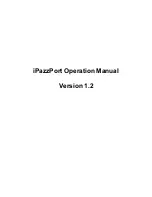
4
Function
The function, in principle, is that fluid is forced
through needle valves at a low rate of flow (Fig.3)
and through a number of apertures in the piston
(Fig.4) at a high rate of flow. The flow through these
apertures is regulated by shims (thin steel wash-
ers, Fig.5) that at high pressure are deflected to
open for the fluid. On most models the needle
valves can be set individually.
By altering the size of the shims stack (ie, number,
thickness, diameter) the characteristics of the
damping action can be varied (this shall only be
done by Öhlins authorized service workshops).
Compression damping
When movement of the motorcycle causes com-
pression in the shock absorber, the fluid flows
through the needle valve (combined compres-
sion and return valve) in the piston rod. If velocity
of the piston is high, ie, in the case of rapid com-
pression, this will not be sufficient and conse-
quently the shims underneath the piston will open
to allow a greater rate of flow (Fig.6).
The fluid that is displaced by the volume of the
piston rod is forced into the external fluid cham-
ber via a separate compression valve. Even this
valve is fitted with shims that open at high piston
velocity. The separating piston is displaced, thus
increasing the gas pressure.
Rebound damping
When the spring presses the shock absorber out
again, the fluid flows back through the needle
valve in the piston rod. The fluid flowing into the
chamber is forced by the pressure of the gas back
into the shock absorber via a separate non return
valve.
If velocity of the piston is high, the shims on top
of the piston will also open to allow the fluid to
flow though (Fig.6).
4. Piston with apertures
3. Flow through
needle valve
5. Shims stack
Stop washer
Shims stack
Piston
Compression flow
Rebound flow
6. Flow through piston






























